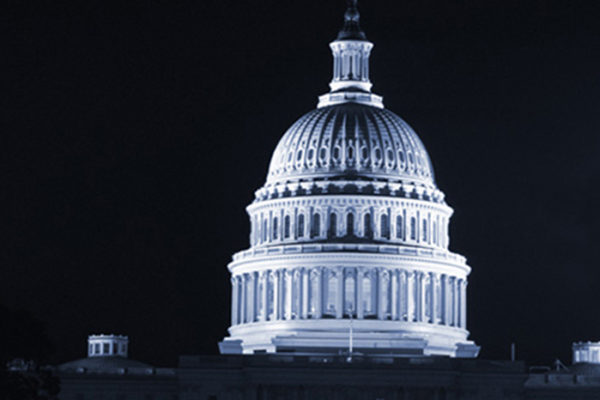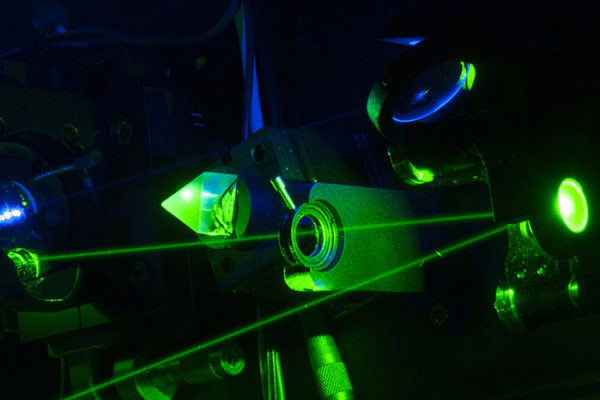Next up for Assembly Series: Bilal Bomani on developing next generation of sustainable biofuels at NASA GreenLab Research Facility
Bilal Mark McDowell Bomani, senior research scientist at the NASA Glenn Research Center, will deliver the 17th annual Chancellor’s Fellowship Conference Lecture for Washington University’s Assembly Series. His talk, which will focus on the research he leads in developing the next generation of biofuels that are sustainable, renewable and safe, will be 11 a.m. Friday, Sept. 20, in Whitaker Hall, Room 100, on the Danforth Campus.
Committed to saving the planet?
The Online College Database has named Washington
University in St. Louis one of “50 Colleges Committed to Saving the
Planet” in recognition of its new environmental policy major. The College Database called the major “a rigorous
journey through the tangled web of politics, bureaucracies, public
opinion, regulation, the global political economy, sustainability,
global oil battles, climate change, genetically altered foods, air and
water quality, and biochemistry.”
Wrighton joins other university leaders urging Washington to close ‘innovation deficit’
Deeply concerned about an “innovation deficit” that is threatening the nation’s economic growth, Chancellor Mark S. Wrighton and Timothy M. Wolfe, president of the University of Missouri System, sent a joint letter last month to Missouri’s U.S. congressional delegation urging their support in helping close this innovation gap. Wrighton and Wolfe also joined more than 160 university presidents and chancellors in signing an open letter July 31 to President Obama and the U.S. Congress asking them to restore federal investments in higher education and research.
Zhang receives prestigious DARPA Young Faculty Award
Fuzhong Zhang, PhD, assistant professor of energy, environmental and chemical engineering, has received a Young Faculty Award from the
Defense Advanced Research Project Agency of the U.S. Department of
Defense. He is the first faculty member at Washington University
in St. Louis to receive the award, which recognizes an elite group of
scientists early in their careers at research universities.
Blue-green algae a five-tool player in converting waste to fuel
Fuzhong Zhang, PhD, assistant professor of energy,
environmental and chemical engineering at Washington University in St.
Louis, works with Synechocystis 6803 — as well as other microbes and
systems — in the areas of synthetic biology, protein engineering and
metabolic engineering, with special focus on synthetic control systems
to make the organism reach its untapped prowess. He says the biotech world has to overcome several challenges to put the engineered microbes in the applications stage.
Chancellor Wrighton, President Wolfe’s letter to Missouri’s leaders in Washington
To read the joint letter that WUSTL Chancellor Mark S. Wrighton and Timothy M. Wolfe, president of the University of Missouri System, sent last month to the 10 members of Missouri’s congressional delegation, including U.S. Rep. William L. Clay, urging their support in helping close the innovation gap, visit here.
Shining a little light changes metal into semiconductor
By blending their expertise, two materials science
engineers at Washington University in St. Louis changed the electronic
properties of new class of materials — just by exposing it to light.
Iron uptake by plants focus of I-CARES grant
With a one-year grant from Washington University’s
International Center for Advanced Renewable Energy and Sustainability
(I-CARES), researchers at Washington University in St. Louis plan to use
some high-tech methods to better understand the processes, mechanics
and interfaces that plants use to move iron from the soil, through water
and into the plant.
New Climate Change Initiative to be led by Peter Raven
Washington University in St. Louis is launching a
new Climate Change Initiative aimed at expanding scientific
research, education and public understanding of global climate change. A
signature initiative of the International Center for Advanced Renewable
Energy and Sustainability, the initiative will be led by Peter
H. Raven, PhD, the George Engelmann Professor of Botany Emeritus and President
Emeritus of the Missouri Botanical Garden.
Fall Assembly Series offers intelligent voices on issues of the day
Created 60 years ago, the Assembly Series is Washington University’s premiere lecture series. Its chief mission is to present interesting and important voices, and it is designed to spark meaningful discussion and lead to greater understanding of our world today. Assembly Series programs are free and open to the public. The fall 2013 schedule, below, opens with First Year Reading Program author Eula Biss on September 9.
Older Stories


